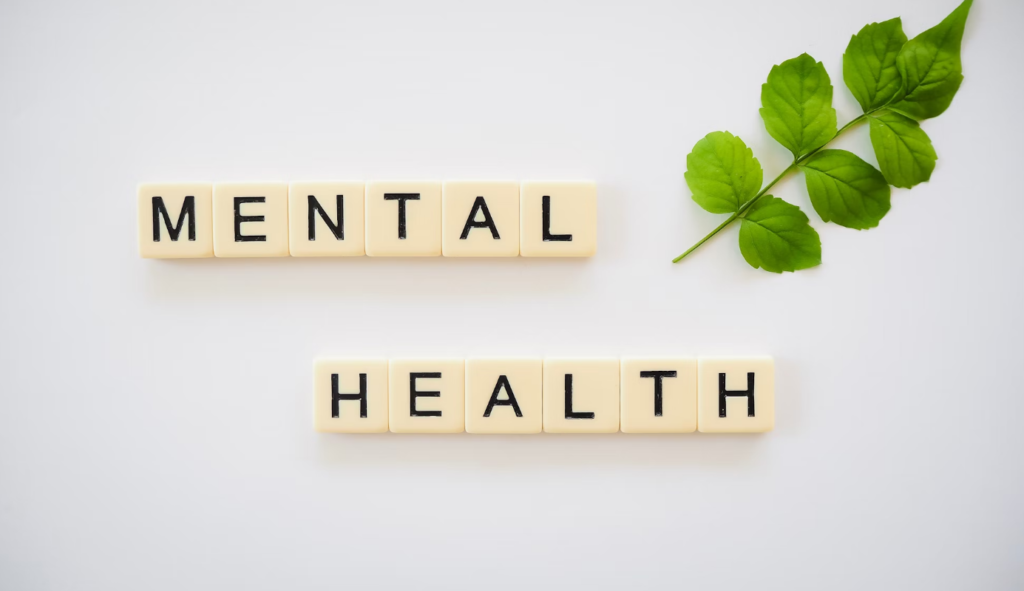Mental health, often overlooked, plays a pivotal role in our overall well-being. In this article, we’ll delve into the intricacies of mental health, exploring common disorders, factors influencing mental health, signs and symptoms, coping mechanisms, and the significance of breaking the stigma surrounding mental health issues.
I. Introduction
A. Definition of Mental Health
Mental health encompasses emotional, psychological, and social well-being. It affects how we think, feel, and act, influencing how we handle stress, relate to others, and make choices.
B. Importance of Mental Health
Prioritizing mental health is crucial for a balanced and fulfilling life. It not only impacts our personal lives but also spills over into our professional spheres and relationships.
II. Common Mental Health Disorders
A. Anxiety Disorders
Anxiety disorders, characterized by excessive worry and fear, are prevalent and can significantly impair daily functioning.
B. Depression
Depression, marked by persistent sadness and loss of interest, is a common but treatable mental health condition.
C. Bipolar Disorder
Bipolar disorder involves extreme mood swings, from manic highs to depressive lows, affecting energy levels and decision-making.
D. Schizophrenia
Schizophrenia is a severe mental disorder altering thoughts, perceptions, and behaviors, necessitating long-term treatment.
III. Factors Influencing Mental Health
A. Biological Factors
Genetics and brain chemistry contribute to mental health, impacting susceptibility to certain disorders.
B. Environmental Factors
Exposure to trauma, abuse, or significant life changes can influence mental health.
C. Social Factors
Social connections, support systems, and societal norms all play roles in mental health.
IV. Signs and Symptoms
A. Physical Symptoms
Headaches, fatigue, and sleep disturbances can be physical manifestations of mental health issues.
B. Behavioral Changes
Isolation, changes in eating habits, or increased substance use may indicate underlying mental health concerns.
C. Emotional Signs
Mood swings, excessive guilt, or heightened irritability can signal emotional distress.
V. Coping Mechanisms
A. Therapy and Counseling
Professional guidance through therapy provides coping strategies and a safe space for self-reflection.
B. Medication
In some cases, medication helps manage symptoms, offering relief from the impact of mental health disorders.
C. Lifestyle Changes
Healthy habits, including regular exercise and adequate sleep, positively influence mental well-being.
VI. Breaking the Stigma
A. Encouraging Open Conversations
Fostering dialogues around mental health reduces stigma, making it easier for individuals to seek help.
B. Promoting Mental Health Awareness
Educating communities on mental health challenges encourages understanding and empathy.
C. Dispelling Myths
Addressing misconceptions about mental health fosters a more informed and compassionate society.
VII. Importance of Self-Care
A. Stress Management
Prioritizing self-care activities helps mitigate stress and enhances mental resilience.
B. Healthy Lifestyle Choices
Balanced nutrition, regular exercise, and sufficient sleep contribute to overall well-being.
VIII. Seeking Professional Help
A. Role of Mental Health Professionals
Trained professionals, including therapists and psychiatrists, play pivotal roles in mental health care.
B. When to Seek Help
Recognizing the need for professional intervention is crucial to addressing mental health challenges effectively.
IX. Impact of Mental Health on Daily Life
A. Personal Relationships
Mental health profoundly influences the dynamics of personal relationships.
B. Work Performance
A healthy mental state positively correlates with improved concentration and productivity in the workplace.
C. Overall Well-being
Prioritizing mental health contributes to an enhanced quality of life and a more positive outlook.
X. Building Resilience
A. Developing Coping Skills
Cultivating coping mechanisms equips individuals to navigate life’s challenges with resilience.
B. Building a Support System
Strong social connections provide invaluable support during difficult times.
XI. The Connection Between Physical and Mental Health
A. Holistic Approach
Recognizing the interplay between physical and mental health promotes a holistic approach to well-being.
B. Exercise and Mental Health
Regular exercise not only benefits physical health but also positively impacts mood and cognitive function.
XII. Mental Health in Different Age Groups
A. Children and Adolescents
Early intervention and support are crucial for addressing mental health challenges in young individuals.
B. Adults
Navigating the complexities of adult life requires ongoing attention to mental well-being.
C. Seniors
Addressing mental health concerns in seniors is vital for maintaining overall health and quality of life.
XIII. Technology and Mental Health
A. Positive Impact
Technological innovations offer accessible mental health resources and support.
B. Cautionary Aspects
Balancing technology use is essential to prevent negative impacts on mental well-being.
XIV. Overcoming Mental Health Challenges
A. Personal Stories of Triumph
Sharing stories of overcoming mental health challenges inspires hope and reduces stigma.
B. Inspirational Narratives
Highlighting individuals who have thrived despite mental health struggles emphasizes resilience and courage.
XV. Conclusion
Reiterating the Importance of Mental Health
In conclusion, nurturing our mental health is not just a personal responsibility but a societal imperative. By understanding, supporting, and breaking the stigma, we contribute to a world where mental health is prioritized.
Encouragement for Seeking Help
If you or someone you know is struggling, don’t hesitate to seek professional help. It’s a courageous step towards a healthier, more fulfilling life.
FAQs:
- Q: Can mental health disorders be cured? A: While some mental health disorders can be effectively managed with treatment, a complete cure may not always be possible.
- Q: How can I support a friend struggling with mental health issues? A: Offer a listening ear, encourage professional help, and be understanding without judgment.
- Q: Is there a link between substance abuse and mental health? A: Yes, substance abuse can exacerbate mental health issues and vice versa.
- Q: What role does genetics play in mental health? A: Genetics can influence the predisposition to certain mental health disorders, but environmental factors also play a significant role.
- Q: Are online therapy sessions effective? A: Online therapy can be effective for many individuals, providing accessible and convenient mental health support.

